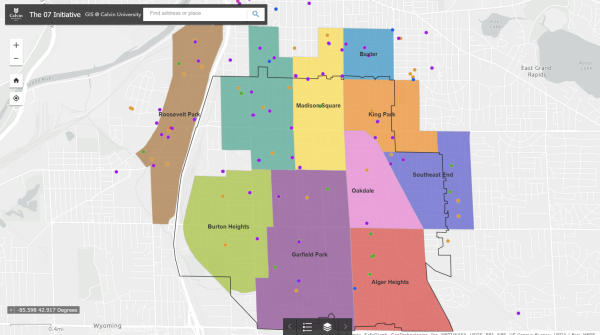Plan to raise money for Michigan roads bogged down
Michigan politicians are attempting to put together a plan to provide additional funding to road maintenance. Lawmakers are hoping to raise nearly $1 billion a year for Michigan roads, but they haven’t assembled a comprehensive plan yet, and likely won’t in time to put it before Michigan voters in May.
Michigan currently levies a 6 percent sales tax, including on gas, but little of that sales tax money is used to pay for roads or bridges. Some fuel excise taxes are used to fund road projects, but on the whole Michigan taxes drivers more and has less money for roads than most other states, despite the fact that Michigan’s rapid temperature fluctuations make roads in Michigan higher-maintenance than comparable roads in other states with more stable temperatures.
“It’s the biggest public policy problem we have,” argued Michigan Infrastructure and Transportation Association’s Lance Binoniemi. “The general public does not understand that the 6 percent tax does not go to funding roads and bridges.”
Governor Snyder recently called for a plan that would create additional revenue by increasing general taxes on gasoline and diesel as well as vehicle registration fees. His plan would change the 15-cent tax on diesel and 19-cent tax on gasoline to a flat 33-cent tax, which could then fluctuate based on the market. This increased revenue would be used exclusively for transportation projects.
The current money from sales tax would about cover the revenue Snyder wants to raise, but the majority of funds from sales taxes go to school aid funds, and diverting that money to transportation would leave a hole in the education budget.
Another idea that surfaced was an alternative proposed by Republicans that would raise the sales tax from 6 to 8 percent. This would raise the revenue for transportation and avoid cutting into current sales tax money for education. To raise the sales tax would require an amendment to the Michigan constitution, which would require a two-thirds majority in both the House and Senate and would need to be approved by Michigan voters at the ballot.
Lawmakers had hoped to have the sales tax amendment passed in a week, in order to get it on the May ballot, but it’s looking unlikely that they’ll be able to pass it by then, meaning they’ll have to wait until the next election to put it on the ballot.
Several other plans have also been offered, including closing tax loopholes to raise the revenue, and selling naming rights to various public programs, such as parks, bridges or offices, and selling advertising rights on bridges.
The current hybrid plan is to raise gas taxes and possibly vehicle registration fees, eliminate the sales tax on gasoline and raise the sales tax on everything else. However, the sheer number of ideas presented is slowing debate.
“I think the fact we threw an idea on the table that hadn’t been fully vetted before caused new people to bring new ideas, and actually we have more to choose from now than we did before,” comments Senator Randy Richardville, the Senate majority leader. “And so, to give all those ideas a chance to be looked at, I think this is going to take more time.”
It’s also unclear if Michigan Republicans will be able to build bipartisan support for the plan, especially since the sales tax increase requires a two-thirds majority. Democrats have expressed some concerns about the plan, and are worried that the discussion has not sufficiently included Democrats.
“If it’s a proposal that focuses on a sales tax increase, which if you ask any economist is the most regressive kind of tax you can possibly implement on families, it’s certainly not something that Democrats are going to be rushing to support,” said a spokesperson for Michigan Democrats. “I think they’re going to have trouble coming up with the votes on this.”
Although Michigan lawmakers are motivated to raise revenue for transportation projects, the current proposals have not yet cohered into a single unified plan.







